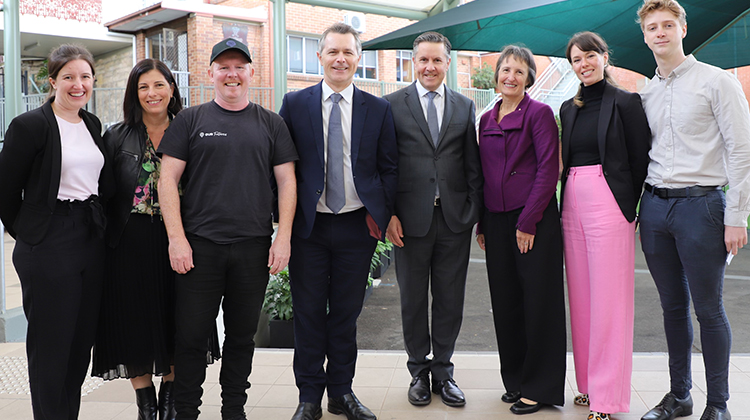Demand for New Youth Anti-Vaping Program Surges

In a sign of the high level of concern that teachers and schools have about rising vaping rates, a 2024 early access scheme for 250 schools to get access to OurFutures vaping program is already at capacity (spots now open for 2025).
The latest data shows one in six high school students have vaped recently. Vapes have become the number one behavioural issue in many schools and studies have shown that nine out of 10 vape shops are within walking distance of schools.
With legislation banning the importation and sale of vapes in place, and recent headline-grabbing seizures reported in the media, the tide should be turning. But the growth in illicit tobacco and cigarettes interceptions - between 1 January and 31 December 2021 the Australian Border Force detected 878.8 tonnes of undeclared loose leaf tobacco and 712.7 million undeclared cigarette sticks, up 45 per cent increase on the previous year - almost guarantees that vapes will get into the country and children will find out where to buy and who is selling.
Speaking at an event for the OurFutures vaping program, Minister Butler said “Vapes were sold to governments and communities around the world as a therapeutic good: a product that could help hardened smokers - usually people in their 40s or 50s - to quit smoking and kick the habit, not one targeted at children but that is what has happened.
“If vapes are therapeutic goods then it is entirely appropriate that Australia should regulate them as therapeutic goods, instead of allowing them to be sold alongside candy bars in convenience stores, often down the road from schools.”
Also at the event, Minister for Education Jason Clare said “Vaping is a major public health issue and major issue in our schools. Principals and teachers will tell you that vapes are causing massive behaviour problems in the classroom.
“Nine out of 10 vapes stores are within walking distance of our schools. This is an industry that is clearly targeting our kids. That’s why banning the sale of these things from corner stores is so important.
“It’s also why resources like the OurFutures vaping program are important - equipping teachers with the tools they need to help to educate young people about the dangers of vaping.”
Assoc Prof Emily Stockings, the Matilda Centre for Research in Mental Health and Substance Abuse, commented "We are seeing young people addicted to nicotine at rates we've not seen for decades. Preventing nicotine dependence before it develops is the best approach, because it impacts brain development and is incredibly difficult to quit.
“Programs like OurFutures are not only backed by rigorously tested evidence, but are developed in partnership with young people, parents, teachers, and educators, and give young people a say in their own health decisions.”
Led by Ken Wallace (CEO), Prof Maree Teesson AC and Prof Nicola Newton, the OurFutures Institute offers a series of drug and alcohol prevention resources that were generated after in-depth research and evaluation at University of Sydney’s Matilda Centre for Research in Mental Health and Substance Use.
The programs use online interactive cartoon storyboards to educate about substance use and were co-designed with more than 210 young people and more than 390 teachers, parents and health and education experts to ensure they are relevant, believable and engaging.
“We know that peer groups are particularly important in the teenage years, and this is a key focus of OurFutures. The characters in the cartoons are around the same age as the target students and that lets us deliver peer-led messages which can be more effective at driving behaviour change among young people compared to having the messages delivered by an authority figure”, Prof Teesson said.
“We also emphasise the importance of looking out for your friends throughout the storylines. There are then opportunities for group discussions to reflect on the key messages and practise skills they have learned.”
A recent Curtin University study found TikTok’s policies on the promotion of vaping are frequently violated, putting the social media platform’s predominantly young users at potential risk of e-cigarette exposure and use. Of 264 videos related to e-cigarettes that the researchers found, 97.7% portrayed them positively. And 69% of the posts reviewed violated TokToks’ content policy, promoting vapes with links to where they can be ordered. International Journal of Environmental Research and Public Health. https://www.mdpi.com/1660-4601/20/10/5761.